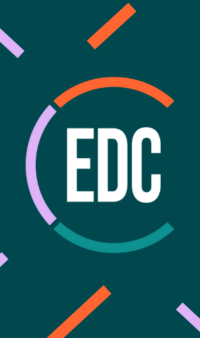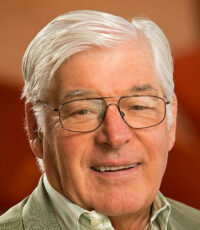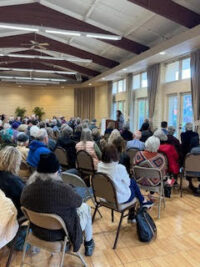Commuters from Sonoma and other Bay Area counties will pay an additional dollar or more – depending on the hour – to cross the Golden Gate Bridge when the Golden Gate Highway and Transportation District votes in July on the increases presented at their board meeting last week.
Mayor Joanne Sanders, who is a Transportation District board member, said the last public input has been taken, and most supported the overall increase but not the peak-hour increase. “At last Thursday’s public meeting,” she said, “most spoke against the Doyle Drive congestion-pricing concept, as opposed to the toll increase the bridge is proposing to balance its budget.”
The overall increase is expected to bring in $18.1 million annually and help close a $91 million budget shortfall over the next five years. The congestion-pricing concept would, by adding an additional toll on peak hours, discourage congestion and qualify the San Francisco Bay Area for an Urban Partnership Grant (UPP), designed to fund congestion relief projects including $36 million for Doyle Drive reconstruction and $12.8 million for Larkspur Ferry Terminal parking improvements.
As outlined, overall increases of one dollar will bring the new cash toll to $6 and the new FasTrak toll to $5. For each extra axle the new toll will be an additional 50 cents, bringing the extra axle cost to $3 for cash and $2.50 for FasTrak.
For disabled commuters, who now pay $1.50, the new toll will be 50 percent of the cash toll, or $3.
In addition to this overall increase, the board will decide between one or two options for a peak-hour (7-9 a.m., 4-6 p.m. weekdays and 3-7 p.m. weekends and holidays) increase.
Under Option A, the proposed FasTrak peak hour increase would be 50 cents, for a total peak hour fee of $5.50. Each additional axle would pay 50 cents for cash, for a total increase of $3.50, and an additional 25 cents per additional axle, for FasTrak. Under Option A, disabled rates would increase by 50 cents for a total crossing cost of $3.50.
Under Option B, the FasTrak peak-hour increase would be the same as the cash price increase, and the cash toll would increase by an additional dollar, for a total crossing fee of $7. The FasTrak fee would add a dollar for a total crossing fee of $6.
Similarly, the FasTrak additional axle fee would increase by 50 cents, the same as the cash increase. The disabled rate would be the same as Option A.
The board will take action on the proposed toll increases at their July 11 meeting.
Cost rising for Sonoma-to-SF commute
More from What's HappeningMore posts in What's Happening »
- Chinook Salmon Spotted in Valley Creeks
- Lighted Tractor Parade Set for November 30 on Sonoma Plaza
- Free Thanksgiving Dinner, 3pm at the Veterans Building
- Creative Sonoma Announces #TeachTheArts Campaign to Boost Local Teaching Workforce
- The Living Legacy of Mac McQuown
- “Community Call to Action Town Hall” Draws Concerned Residents






